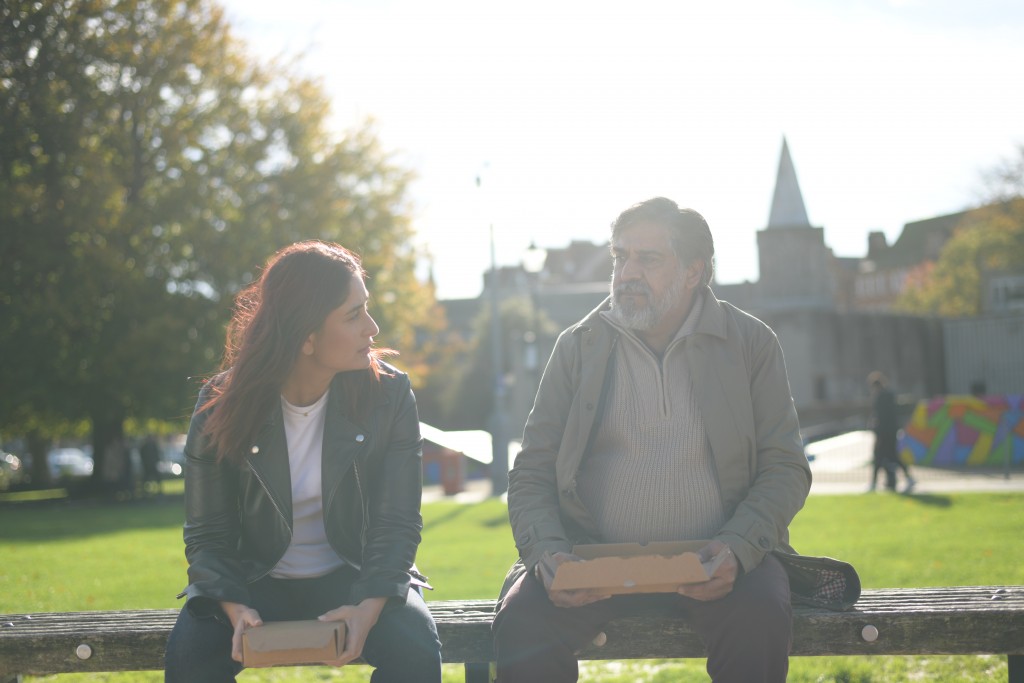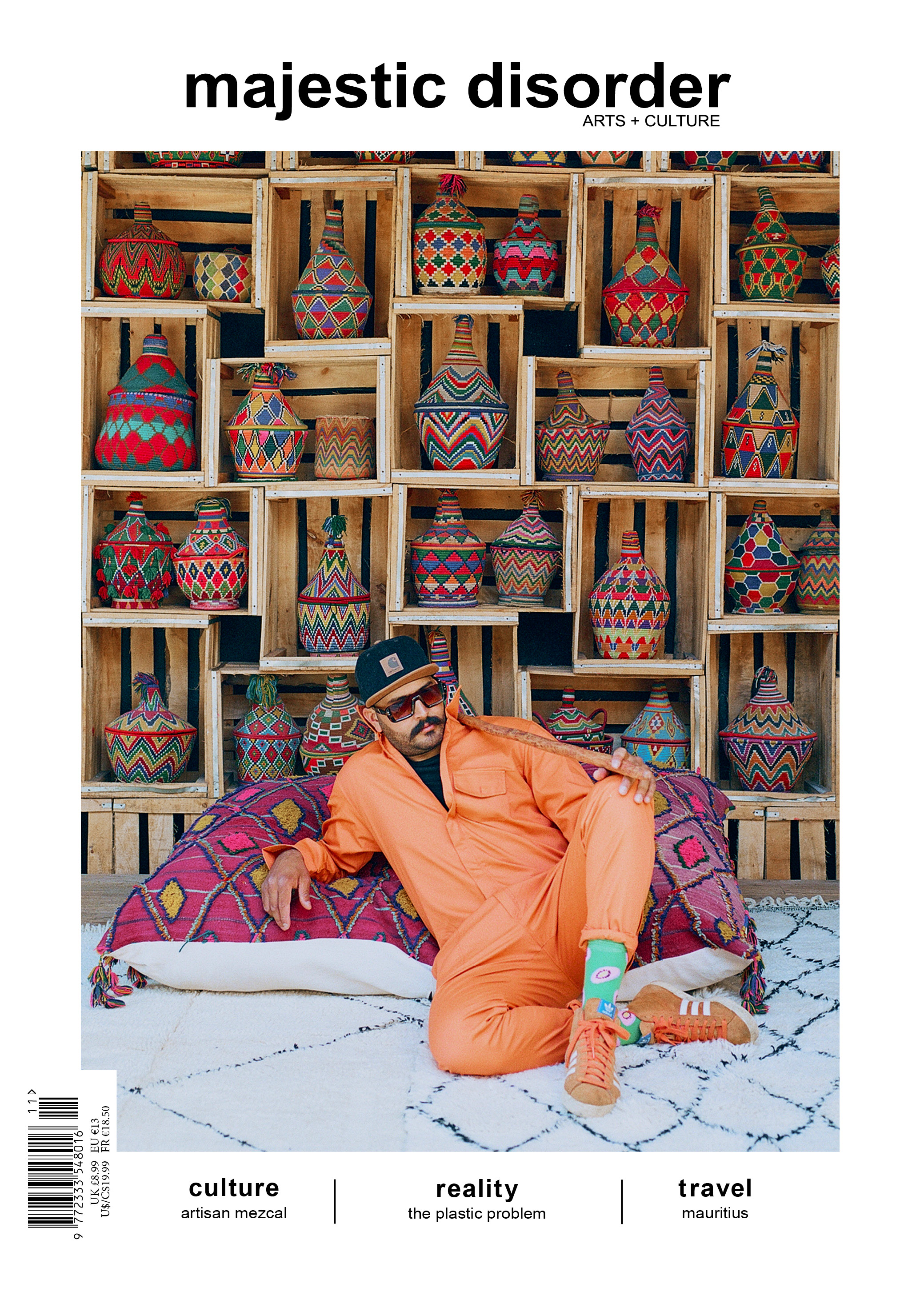THE BUCKINGHAM MURDERS
In conversion with director Hansal Mehta
Words Sean Stillmaker
A ripped from the headlines gritty police procedural can summarise any number of films and tv series, but put it into the hands of an acclaimed filmmaker, and you’ll get an entirely fresh spin on the genre. That’s exactly what Indian director Hansal Mehta does with The Buckingham Murders.
Widely known in Bollywood for his daring socio-political narratives, Hansal jumps out of his comfort zone by coming to rural England, shooting entirely on location and working with a mostly British crew. However, Hansal does import one crucial element, The Buckingham Murders is led by Bollywood A-lister and acclaimed actress Kareena Kapoor who marks her first credit as producer with the film.
The Buckingham Murders follows Detective Jaspreet Bhamra (played by Kareena) who is a grieving mother suffering the loss of her murdered son. She then moves to Buckinghamshire where she’s tasked with investigating the disappearance of a missing child and ends up embroiled in a polarised conflict between the Hindu and Muslim communities (very much inspired by the 2022 riots in Leicester where over 50 people were arrested).
Hansal, a recipient of best director in 2013 for Shahid by India’s National Film Awards (equivalent to the American Oscars), delicately balances the film between plot, character and reflection upon contemporary culture. We sat down with him after the film’s premiere at the BFI London Film Festival to learn more of the journey.

Where did the original idea of The Buckingham Murders come from?
My writer [Aseem Arrora] came to me with a crime detective story based in the UK and I was fascinated by the genre of crime detective; it was something I had not done before. I thought there was a chance to explore thematically many more things, like grief, isolation and motherhood, and to not to make a film that you would expect typically of Bollywood to make in England ⎯ to make a film that felt local and yet had a wider appeal.
Was it intentional that you chose a female protagonist in a male dominated genre of crime and police?
That’s the way the story was written. There was a female protagonist and that is one of the things that drew me to this story. We also knew that we would have to approach a major star to do this way back in 2019. We started [developing it] in 2019. Then it happened and started and stopped, and then the pandemic hit us. So everything had stopped, and we were also often going in different directions with the story. Sometimes it would become too much of a murder mystery. Sometimes it would be too much of a human drama. It was finding that right balance and then we also drifted because I was busy filming a show for Sony in India, which went on to become a major success (Scam 1992).

What was it like working with Kareena and her reaction when she first read the script?
She signed on somewhere in late 2020. She was so enthusiastic! I was a bit wary, I was not sure such a big star would come on. She was so open to pushing her own boundaries as an actor. She’s seen stardom, years and years of major stardom and she still remains a major star in the country. But to explore herself as an actor ⎯ I think there’s this vast untapped reservoir of talent and emotions within her.
Why did you choose to incorporate the division between Muslims and Hindus in the film?
The polarisation and the search for identity has always been a theme in my films from the beginning. It’s a lot about identity and that somewhere people who are searching for their identity and yet have to live life on a day-to-day basis.

What was it like learning about the UK’s law enforcement and how did its operations differ from India?
It was very different. Our initial interpretation of the story was based on procedures that we had seen either in films or what we would follow in India. So it was a mix of that, and I realised midway through that, we need to get this checked. As we went checking the procedural elements, we realised that it’s very different. A detective is not a cop, that’s one of the big differences. So to keep [Kareena’s character] a detective, to show her investigating and yet not being a regular cop, in a uniform with a gun. To have a thriller is more mental than physical.
What was the consultant relationship like?
There were consultants from the force in the UK who helped us with the research. My co-writers [Raghav Raj Kakker and Kashyap Kapoor] actually interacted a lot with them. I kept asking questions. Does this really happen? I had a British crew, I had a production designer (May Davies), she had done a couple of procedurals earlier so she really helped define the spaces and the designations. She would always correct me that this is it, not this. The costume designer (Charlie Knight), the production designer and the director of photography (Emma Dalesman), were all British women. They really helped get the entire thing right, the way they look, the way they investigate and the hierarchy.

What was it like working with a nearly entire British crew?
It was amazing because as a filmmaker, when you come to a foreign country, you view the place like a tourist. You know the sights, the sounds, they fascinate you. The canvas fascinates you. The crew is very familiar with the place, so they are more interested in the human story. And me as an Indian filmmaker, I’m interested in drama. There’s an eye that is finding the place new and seeing a new place, through new eyes. And there are eyes that have seen the place many times. So I think it was a great marriage, they helped me explore the human drama whereas I helped them explore the canvas.
What was the most challenging part of the production?
I think one of the big challenges was to incorporate English and Hindi in the film seamlessly. Those who speak Hindi, who understand Hindi primarily, get the film without having to know English and the other way around. People who know English don’t really get bothered by Hindi. It was finding the correct balance, I did not want anybody’s language to sound unnatural.

Related Reading






 @majesticdisorder
@majesticdisorder